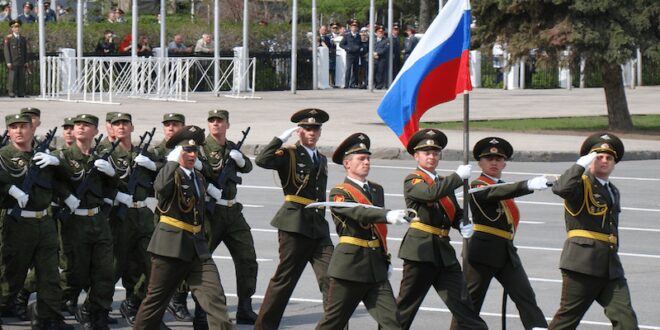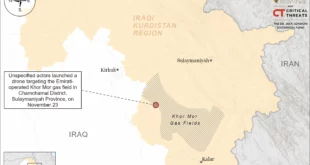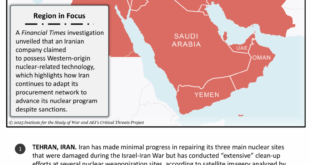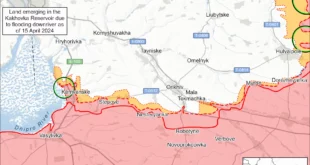President Vladimir Putin’s decree to expand Russia’s reserved armed forces to 1.5 million marks a significant transformation in Russian military strategy. This action is not merely a reaction to perceived external threats but a strategic initiative aimed at consolidating Russia’s global influence amid intensifying geopolitical competition.
With NATO’s presence strengthening along Russia’s borders and ongoing sanctions exerting pressure on the Russian economy, this decree indicates Moscow’s intention to safeguard its national interests through military means. However, the implications of this decision extend well beyond Russia’s borders, impacting Europe’s security architecture, NATO’s strategic calculations, and global geopolitical dynamics. This essay examines the domestic, regional, and global consequences of Putin’s decree, with particular emphasis on its implications for European security and the evolving nature of the Russia-Europe geopolitical rivalry.
Russia’s Military Expansion: Strategic Rationale
Russia’s decision to augment its military reserves arises from a confluence of geopolitical, strategic, domestic, and economic considerations. In recent years, Russia has recalibrated its military posture in response to what it perceives as escalating external threats. NATO’s expansion, particularly in Eastern Europe and the Baltics, has become a contentious issue for Moscow, which regards the alliance’s proximity as a direct challenge to its sphere of influence. The 2014 annexation of Crimea and the subsequent conflict in Ukraine exacerbated these tensions, resulting in Western sanctions and bolstering NATO’s resolve to defend its eastern members.
By increasing the reserve forces to 1.5 million, Russia aims to ensure that it possesses the requisite manpower to protect its extensive borders and sustain its military presence in key regions such as Eastern Europe, Central Asia, and the Arctic. Additionally, this initiative strengthens Russia’s deterrent capability, complicating considerations for NATO or potential adversaries regarding military action against Russian interests. Putin’s decree, therefore, reflects a broader strategic vision aimed at enhancing Russia’s capacity to respond to both conventional and hybrid warfare scenarios while positioning it as a formidable military power on the global stage.
Domestic Implication for Russia
While the decree may enhance Russia’s military readiness, it is accompanied by considerable domestic challenges. The expansion of the reserve forces will necessitate substantial financial resources, thereby further straining an economy already under pressure from Western sanctions and the global economic downturn. Historically, Russia has allocated a significant portion of its GDP to defence spending; however, maintaining an enlarged reserve force will require an even greater financial commitment from a country experiencing declining revenues from its energy exports.
As military expenditure is likely to increase, other sectors of the economy, such as education, healthcare, and infrastructure, may face underfunding, potentially leading to discontent among the populace. Furthermore, the societal ramifications of this decree cannot be overlooked. The expansion will likely necessitate increased conscription efforts, which could provoke resistance from certain segments of the Russian population, particularly among young individuals and their families. The ongoing conflict in Ukraine has already generated widespread concerns regarding military service, and an increase in the size of the reserves may further intensify these anxieties. Putin’s regime has traditionally relied on nationalist rhetoric and the projection of strength to sustain domestic support; however, the social costs associated with military expansion could undermine that support if the economic and personal sacrifices demanded of the Russian people become excessive.
Implications for Europe
The most immediate and significant impact of Russia’s military expansion will be felt in Europe, where tensions between Russia and NATO are currently at their highest levels since the Cold War. The prospect of a 1.5 million-strong Russian reserve force will inevitably compel European countries to reassess their defence strategies, with many likely increasing their military expenditures in response. This development could further exacerbate the ongoing arms race between Russia and the West, heightening the likelihood of military confrontations through either direct conflict or proxy wars in regions of strategic importance.
For Eastern European countries such as Poland, Latvia, Lithuania, and Estonia, the expansion of Russia’s military reserves represents a direct threat to their security. These nations, which share borders with Russia or its ally Belarus, are particularly vulnerable to Russian military aggression. The knowledge that Russia is enhancing its military readiness will likely prompt these countries to seek greater assurances of protection from NATO and the United States. Practically, this could lead to an increase in NATO forces stationed in Eastern Europe, the deployment of advanced military equipment, and intensified military exercises in the region—all of which would further inflame tensions with Moscow.
The European Union (EU) will also face challenges in balancing its economic interests with its security needs. While many EU countries remain dependent on Russian energy supplies, the escalation of military tensions may motivate Europe to expedite its efforts to reduce reliance on Russian gas and oil. The EU has already implemented sanctions against Russia in response to its actions in Ukraine, and further military provocations could result in additional economic measures aimed at isolating Moscow. However, these sanctions come at a cost to European economies, which may struggle to sustain growth amidst rising energy prices and supply chain disruptions.
NATO’s Strategic Response
NATO’s response to Russia’s military expansion is likely to encompass a combination of deterrence and diplomatic efforts. The alliance has already implemented measures to fortify its eastern flank, including the deployment of troops and military assets to member states bordering Russia. Nevertheless, the potential for a larger Russian military presence will compel NATO to further enhance its capabilities, potentially through increased defence spending, the development of innovative technologies, and greater collaboration among member states.
Concurrently, NATO must balance its military preparations with initiatives aimed at avoiding unnecessary escalation. While the alliance is committed to the defence of its members, it must remain cognizant of the risks associated with provoking a larger conflict with Russia. Diplomatic channels with Moscow will be essential for managing tensions and preventing misunderstandings that could inadvertently lead to military clashes. However, with relations between Russia and NATO currently at a low point, establishing common ground for negotiation is likely to be challenging.
Global Geopolitical Consequences
Beyond Europe, Russia’s military expansion will yield broader geopolitical implications, particularly in regions where Moscow seeks to assert its influence. In the Middle East, Russia’s involvement in Syria has already exemplified its willingness to project military power outside its borders, and the increase in reserve forces will enhance its capacity to operate in additional areas.
Similarly, Russia’s growing military presence in the Arctic, where it competes with NATO countries for control of key shipping routes and natural resources, will likely intensify as a consequence of the expanded reserve force. On the global stage, Russia’s military buildup may also facilitate closer cooperation between Moscow and its strategic partners, particularly China and Iran. Both nations share Russia’s opposition to Western dominance in global affairs, and the three powers could increasingly collaborate on military, economic, diplomatic, and other fronts to challenge the prevailing international order.
Conclusion and Recommendations
President Putin’s decree to expand Russia’s reserved armed forces to 1.5 million represents a significant escalation in the country’s military posture and has profound implications for European and global security. For Europe, this expansion presents an imminent threat, necessitating a reassessment of defence strategies, enhanced cooperation within NATO, and a careful balance between deterrence and diplomacy. The economic and social costs associated with this military buildup could potentially generate internal pressures within Russia, complicating Putin’s endeavours to maintain public support.
To mitigate the risks of escalation, NATO and the EU should continue to reinforce their defence capabilities while engaging in diplomatic efforts aimed at reducing tensions with Moscow. This engagement should encompass dialogue with Russia regarding arms control and security arrangements, particularly concerning military deployments in Eastern Europe. Simultaneously, European nations must expedite initiatives to diversify their energy sources and decrease economic dependency on Russia, thereby diminishing Moscow’s leverage in future conflicts. Ultimately, maintaining a balance between military preparedness and diplomatic engagement will be crucial to preserving peace and stability in Europe and beyond.
 Eurasia Press & News
Eurasia Press & News



